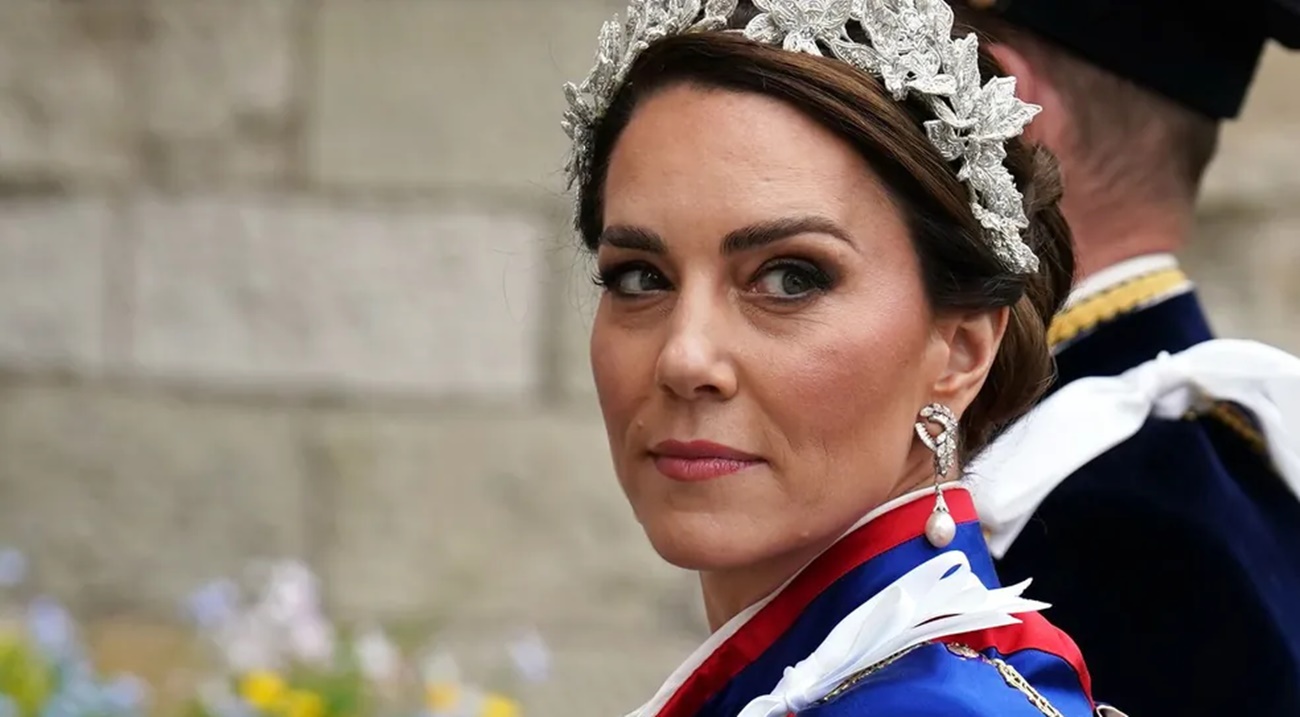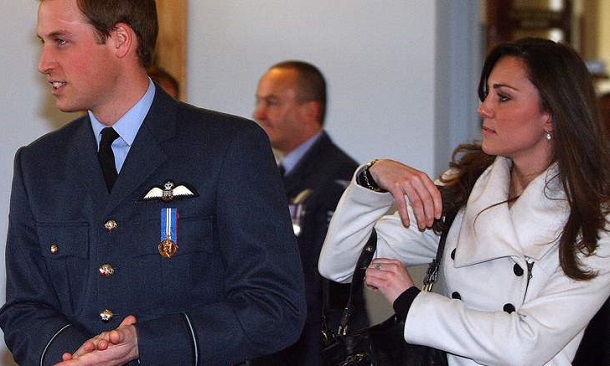Expert on Princess Kate: “A red line is being crossed”
Rumors have been swirling about Princess Kate's health for months. Even after the announcement of her cancer diagnosis, these do not decrease. An expert explains at t-online what is behind the phenomenon.

After Princess Kate withdrew from the public in January following abdominal surgery, there was speculation around the world about her condition and the reasons for the procedure.
When a retouched photo of the 42-year-old and her three children was published on British Mother’s Day, speculation escalated. Here you can read more about it.
The fact that Prince William’s wife finally clarified herself on Friday and made her cancer diagnosis public did not stop this phenomenon – on the contrary. Numerous new conspiracy theories continue to sprout around Princess Kate.
Marko Kovic is an expert in cyberpsychology and conspiracy narratives and explains the fascination they emanate, what role social media and artificial intelligence play and why the British royal family in particular is affected by them.
Marko Kovic: The social scientist, who studied political science and received his doctorate in communication science, now researches, among other things, cyberpsychology and conspiracy theories.
t-online: Where does this competition of conspiracy stories on the Internet come from?
Marko Kovic: A combination of factors contribute to the perfect conspiracy storm: the desire for exciting stories; the feeling of being right in the middle of the story and being one of those people who “do their own research”; the globalization of conspiracy narratives via social media and a general cynicism towards institutions and elites.
Are TikTok’s algorithms partly to blame?
TikTok doesn’t deserve excessive bashing. Of course, the algorithms on TikTok do their part to spread nonsense, but so do algorithms on Instagram and X. All social media organizations want to maximize user engagement, meaning that the user sees, comments and writes as many posts as possible. This works best with content that is emotionally moving and goes viral. Such content is often misinformation.
What role do the mechanisms of the attention economy play?
Over the last decade or so we have seen a brutalization of the attention economy. The cooperative competition for the better argument is increasingly giving way to pure competition for attention. Almost every means is right. In the ocean of online content, what particularly shocks, angers, scares or, more generally, what stands out from the crowd only has a chance.
Do people question images, videos or reports from institutional sources more now than before?
I think that people today are more skeptical when they receive content from established, institutional sources. Critical questioning of sources is good in and of itself. In my opinion, the problem is that the criticism is often only selective: If content supports what you want to believe, you accept it without reflection. If content instead contradicts what you want to believe, you erase this dissonance with a blanket rejection that is also unreflective in terms of content.
Is the “conspiracy trend” accompanied by a crisis of trust in traditional media?
In general, it is clear that trust in journalistic media has been declining for years. At the same time, fewer and fewer people are using journalistic media as a source of information. The dominant interpretation pattern in conspiracy thinking is the belief that “mainstream media” should not be trusted across the board and in principle. Such developments and attitudes encourage the spread of misinformation.
What can those affected, like in this case Princess Kate and the royal family, do to stop these rumors?
It’s not easy to find the right means because the mob does and believes what the mob wants to do and believe. It is generally advisable to create transparency if possible and not to provide a target for conspiracy theories. But that’s no guarantee either, because paranoia is always looking for new ways. After Princess Kate made her cancer public, numerous new conspiracy theories emerged: the Covid vaccination gave her “turbo cancer”; That wasn’t Princess Kate at all, but a double or artificial intelligence.
What makes the case of the British princess so special?
On the one hand, Princess Kate has experienced a tremendous amount of personal malice. On the other hand, the conspiracy hype regarding her was a kind of cross-camp hunt. From left to right, a lot of people have participated and enjoyed the speculation and fake news about Middleton. Also because conspiracy theories about the British royal family have a tradition and have become something of a global popular sport.
Keywords: artificial intelligence, more advanced image processing software, deep fakes: Is the human brain no longer able to keep up and therefore trusts the supposedly simpler explanations?
Counterfeits using artificial intelligence can be technically impressive in principle, but in practice they are still largely trash. The problem is not highly professional fakes, but the gigantic flood of AI junk that is flooding the Internet. Facebook, for example, is mutating into a great lure for older people who unthinkingly believe AI trash images to be real and interact with them. We are all systematically irrational and have dozens of well-documented reasoning errors called cognitive biases. They are simply more important today than before because the communication environment today is a total, never-ending overstimulation of stimuli.
How much do these technical innovations fuel the “conspiracy business”?
Thanks to technical innovations such as generative AI, it is becoming increasingly easier for malicious actors to produce disinformation such as conspiracy stories and spread them widely. “Flood the Zone with Shit,” and something is sure to stick. [Editor’s note: “Flood the Zone with Shit” means: flood people with nonsensical, inflammatory, absurd, fact-twisting stuff that is credible to the uninformed.]
What does that do to those affected – especially if, like Prince William, you were confronted with the negative effects of media campaigns in early childhood?
I myself have neither sympathy for the aristocracy in general nor for the British royals in particular. It is legitimate to publicly and intensively criticize people who enjoy privileges and hold positions of power. But when criticism clumps together into malicious conspiracy fantasies and there is no longer any room for rational arguments, a red line in civilized social interaction is crossed. Social conditions do not improve for anyone when individual members of the elite are bullied from a distance.


